Iowa Rental Agreement

An Iowa rental agreement is a legal contract between a landlord overseeing a rental property and a tenant who wishes to use it. Iowa landlord-tenant law governs these agreements; rental terms must be within the limits allowed by law.
Iowa Rental Agreement Types
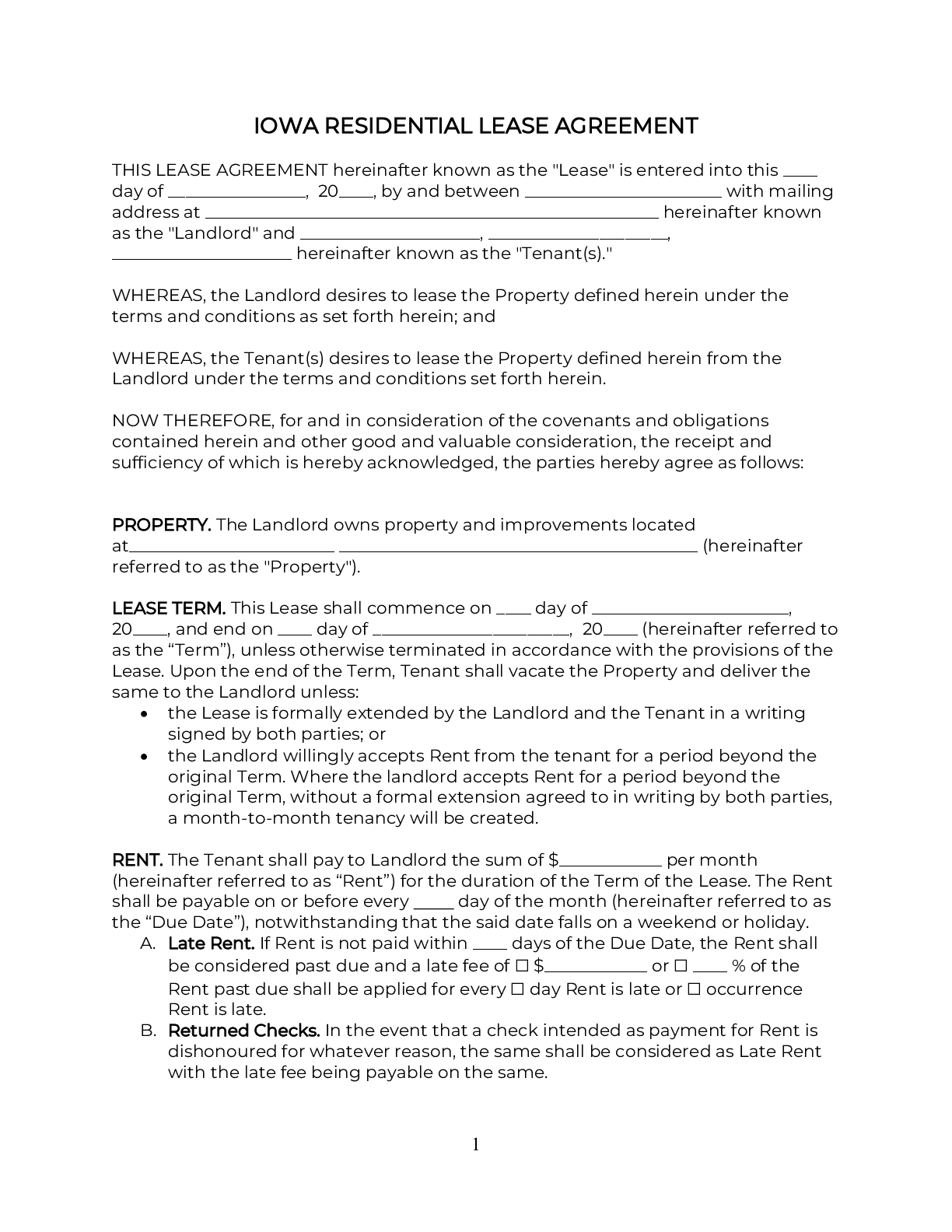
An Iowa residential lease agreement (“rental agreement”) is a legal contract for a tenant to rent a residential property from a landlord, subject to terms and conditions agreed by all parties.
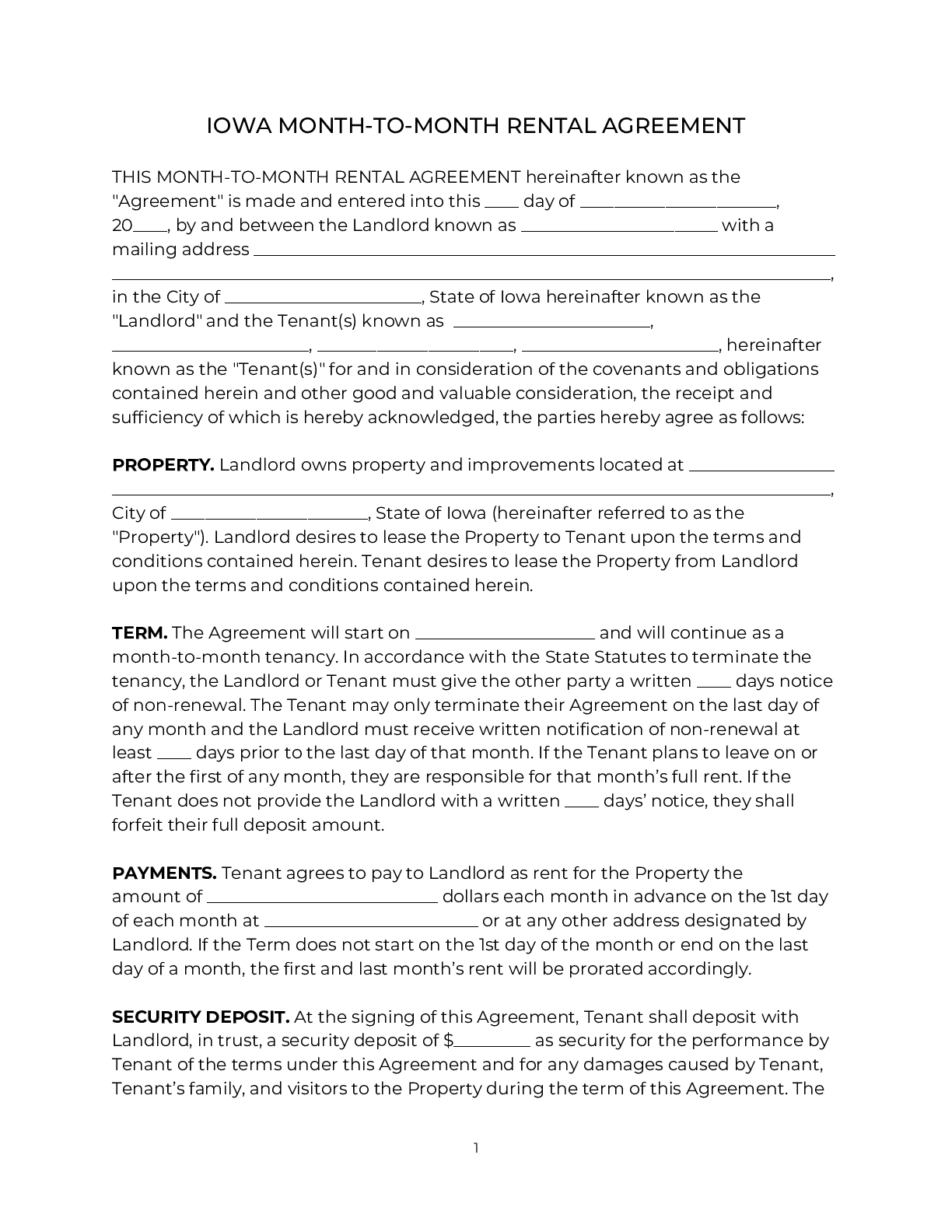
An Iowa month-to-month lease agreement is a contract (not necessarily written) where a tenant rents property from a landlord. The full rental term is one month, renewable on a month-to-month basis.
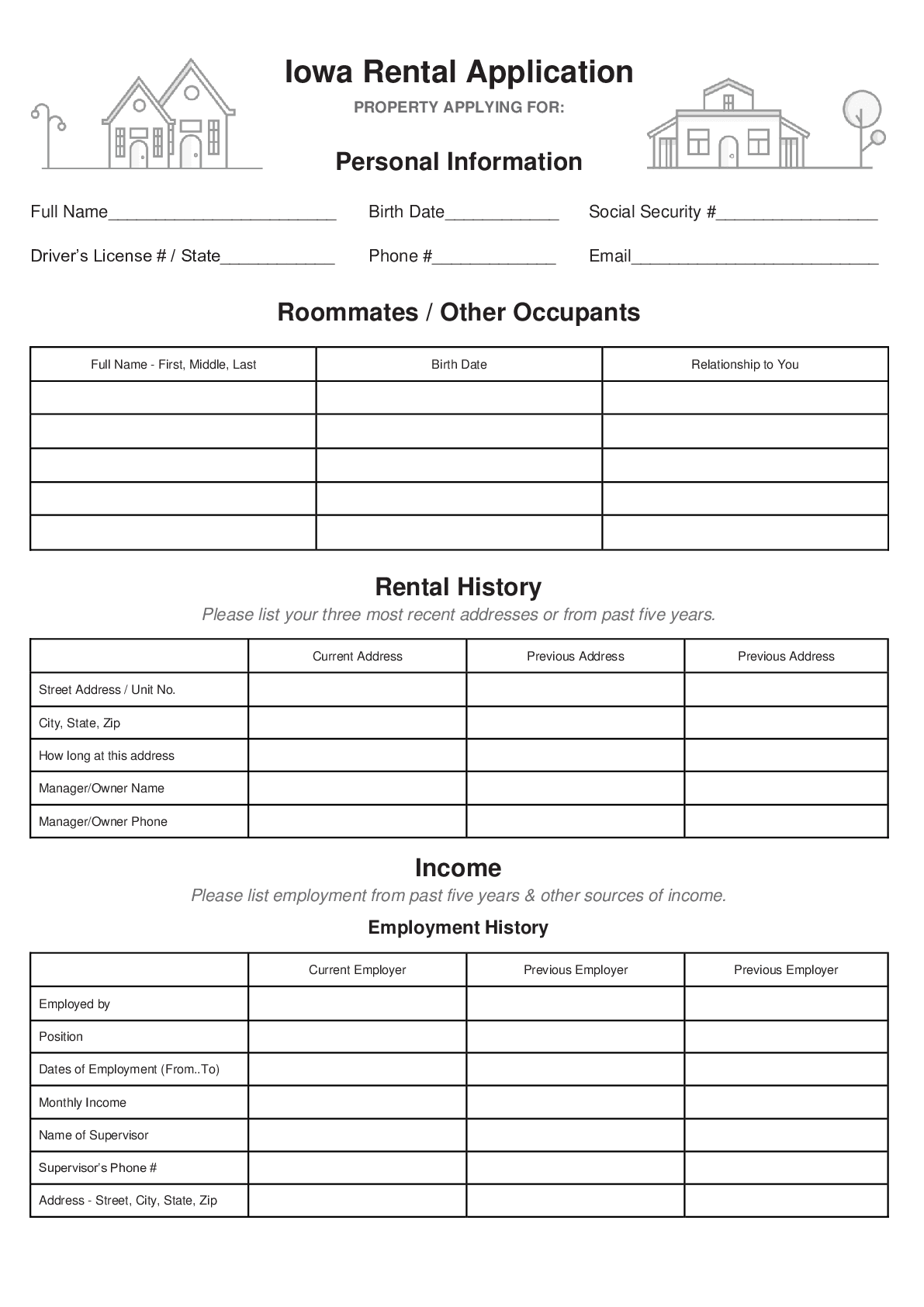
Iowa landlords may use a rental application form to screen prospective tenants. A rental application collects information relating to finances, rental history, and past evictions.
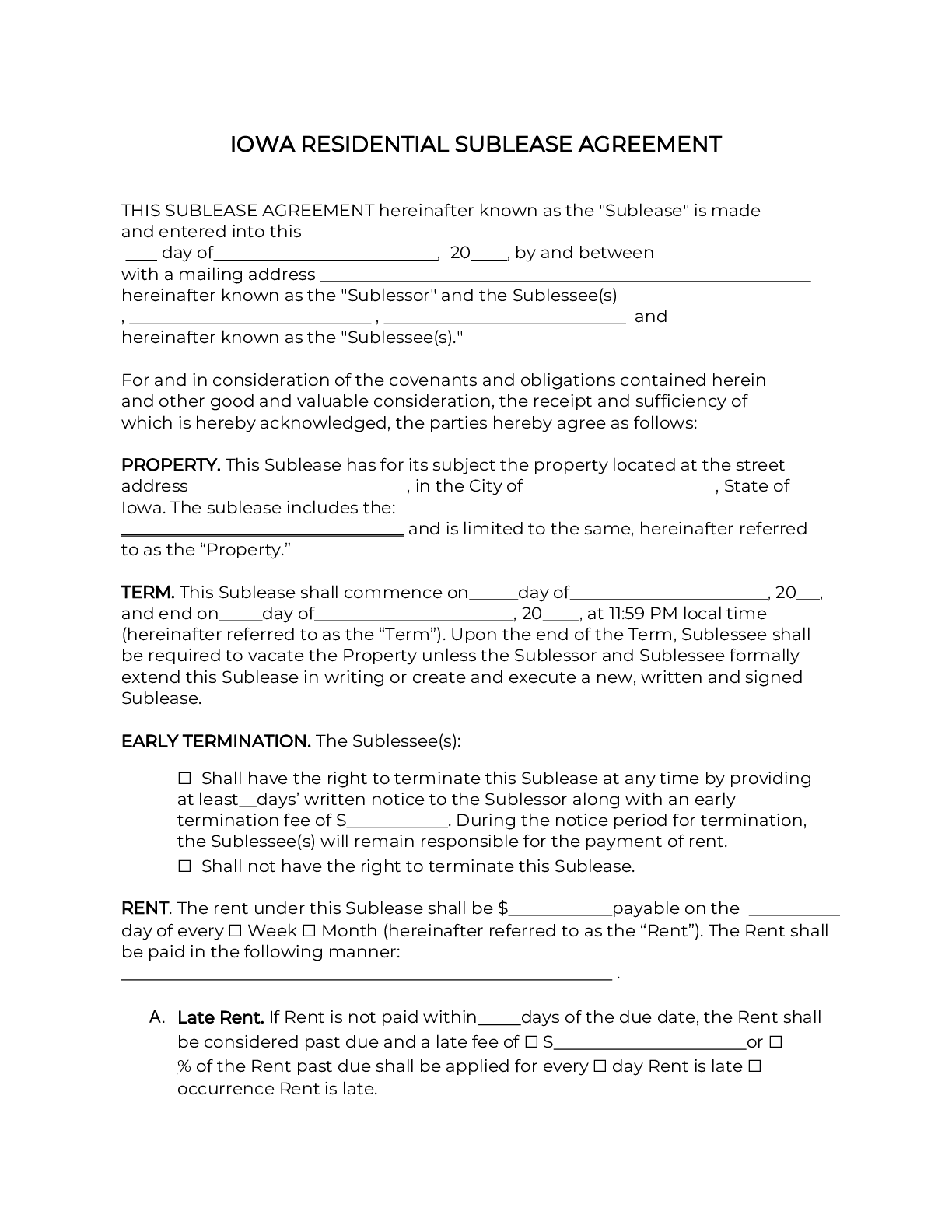
An Iowa sublease agreement is a legal contract where a tenant ("sublessor") rents (“subleases”) property to a new tenant (“sublessee”), usually with the landlord’s permission.
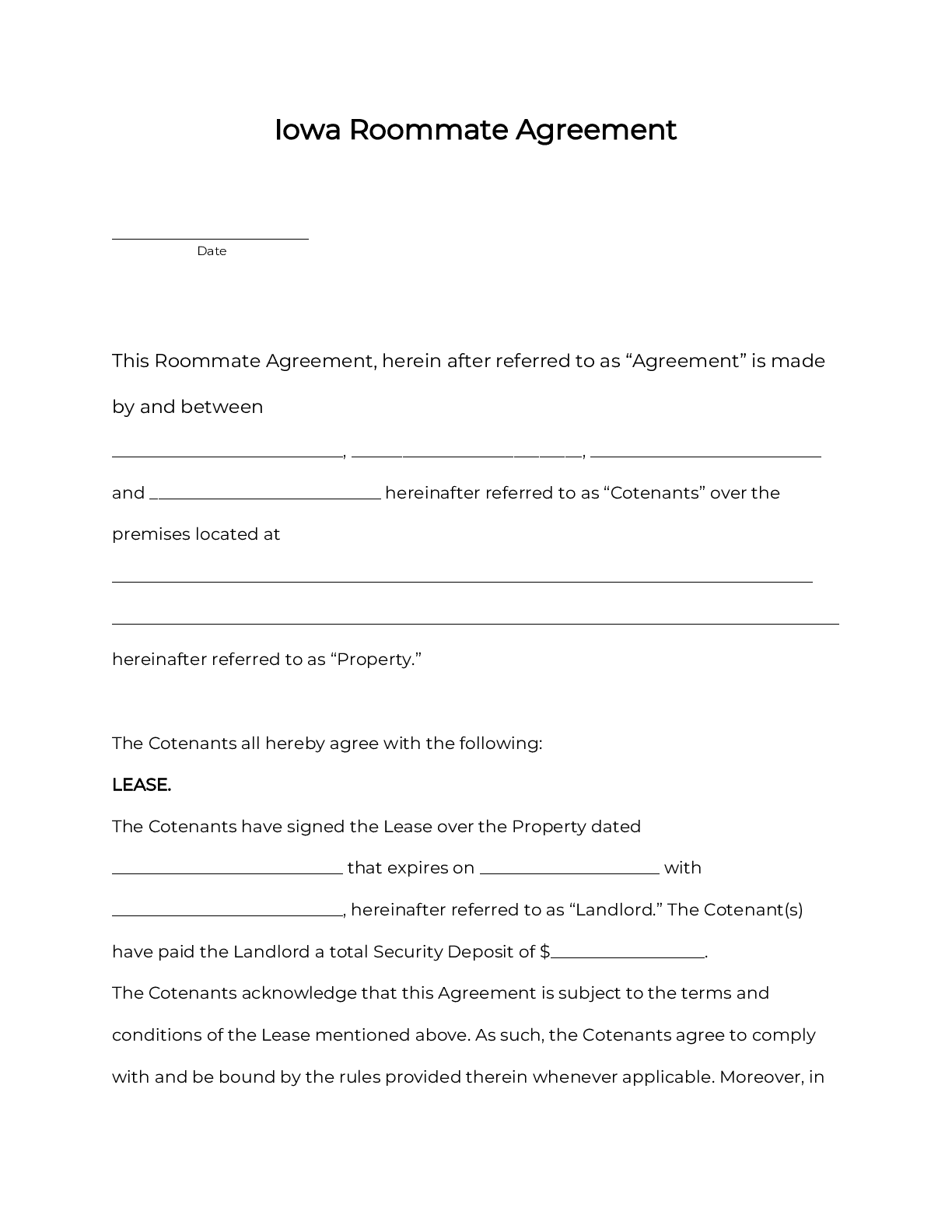
An Iowa roommate agreement is a legal contract between two or more people (“co-tenants”) who share a rental property according to rules they set, including for things like splitting the rent. This agreement binds the co-tenants living together, and doesn’t include the landlord.
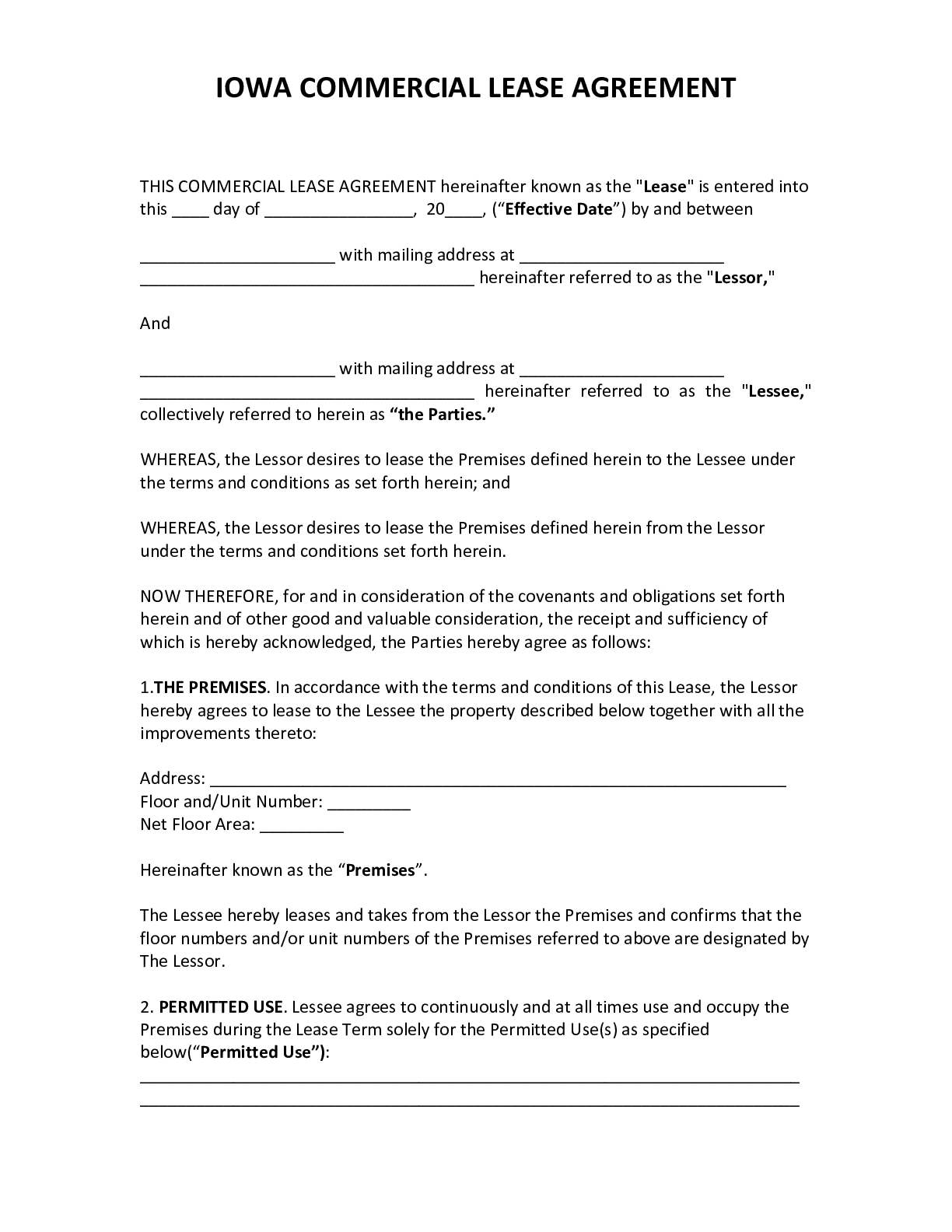
An Iowa commercial lease agreement is a legal contract arranging the rental of commercial space between a landlord and a business.
Iowa Required Residential Lease Disclosures
- Landlord’s Name and Address(required for all leases) – Iowa leases must contain the name and address of the landlord or authorized agent. This enables smooth communication of any important legal notice.
- Utility Disclosure(required for some leases) – Iowa rental property which shares utilities with a common area or another unit must disclose service charges and how any charges are billed.
- CERCLA Disclosure(required for some leases) – Iowa landlords of property located in the Comprehensive Environmental Response, Compensation, and Liability Act (CERCLA)’s database must disclose the property’s pollutant and contaminant status under the Act to the tenant.
- Lead-Based Paint Disclosure(required for some leases) – For any property built before 1978, federal law requires that a Iowa residential lease must contain a lead-based paint disclosure with an EPA informational pamphlet, plus notice of any lead hazards on the property.
To learn more about required disclosures in Iowa, click here.
Iowa Landlord Tenant Laws
- Warranty of Habitability – Iowa landlords can only rent out habitable property, which means providing certain features essential to basic health and safety. This includes things like heat, plumbing, electricity, and sound structural elements. Landlords must repair any issues within seven days after proper notice from the tenant. Failure to repair lets a tenant sue the landlord, terminate the lease, or repair and deduct from the rent. Tenants in Iowa aren’t allowed to unilaterally withhold rent.
- Evictions – Iowa landlords may evict for rent default, lease violations, or illegal acts, among other things. Before filing eviction, landlords must serve tenants with prior notice to pay, comply, or quit, depending on the eviction type. This means most evictions in Iowa take between a few days to a few weeks. Property that was covered by the CARES Act is federally entitled to a minimum30 days of advance notice before a landlord can file an eviction for nonpayment of rent or other fees, and Iowa requires a CARES Act Landlord Verification before filing for eviction. [1]
- Security Deposits – Iowa caps security deposits at a maximum of two months’ rent. Upon lease termination, a landlord has 30 days to return any unused portion of a security deposit to the tenant.
- Lease Termination – Iowa lets tenants terminate a month-to-month lease with 30 days of advance notice. A fixed-term lease can’t be terminated early without active military duty, landlord harassment, uninhabitable property, or domestic abuse.
- Rent Increases and Fees – Iowa landlords can raise rent by any amount, whenever they want, with no particular requirements for justification, as long as they give at least 30 days of advance notice. Late fees are capped at $12 per day and a maximum of $60, or $20 per day and a maximum of $100, depending on situation.
- Landlord Entry – Iowa landlords may enter rental property for reasonable purposes related to the tenancy, such as maintenance and inspections. They must enter only at reasonable times of the day and week, and must provide at least 24 hours of advance notice before entering, except in emergencies.
- Settling Legal Disputes – Iowa allows hearing landlord-tenant disputes in its small claims courts, as long as the amount in controversy is under $6,500. The statute of limitations is 10 years for written contracts and five years for verbal contracts.
To learn more about landlord tenant laws in Iowa, click here.
Sources
Any plaintiff bringing an FED action under chapter 648 for nonpayment of rent after the date of this order shall submit a CARES Act verification in a form approved by this court. This requirement shall continue in effect until further order of this court.








